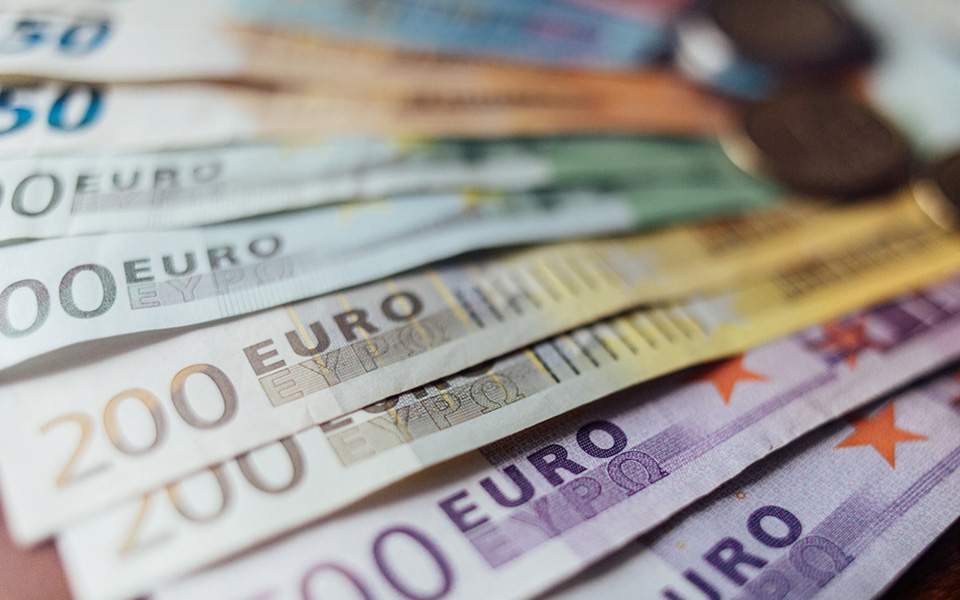The five factors to determine the course of Greek bonds

Greek bond yields have this year exceeded even the most optimistic forecasts, with the cost of borrowing for the Greek state declining by over 72 percent since the start of 2019.
State bonds in the entire yield curve have reached historic lows, while at a recent treasury bill auction the interest rates slipped to negative territory, leading no less a figure than European Central Bank chief Mario Draghi to qualify it as “a clear success for Greece”.
This unprecedented rally in bond prices accelerated after last July’s election, with the country risk at near zero. But is there any room for that to continue?
As Sebastien Galy, Senior Macro Strategist at Nordea Asset Management tells Kathimerini, “we expect the rally in Greek bonds to continue and reach the levels of [Italy’s] BTPs”.
On Friday the yield of the benchmark 10-year bond dropped to 1.23 percent, while its Italian peer was near 1 percent. According to Galy, “the feedback loop between lower yields, better growth, lower credit risk and easier financing conditions for the government should help” Greek bonds sustain this course.
Analysts say there are five factors that will determine the course of the Greek bonds in the coming period, with the first being the ECB strategy and the international environment in general.
The easing of ECB monetary policy, that Christine Lagarde is expected to continue, will support the bond market in the region. Melanie Debono, Europe Economist at Capital Economics says to Kathimerini that “while the new round of QE is unlikely to include Greek bond purchases (as Greek debt is still classified as below ‘investment grade’) there will be knock-on effects.”
“Nevertheless, we suspect that the 10-year bond yield will rise to the end of the year, from today’s 1.25 percent to 1.50 percent by end-2019. This is because we expect trade tensions to flare up again and global growth to slow triggering another bout of risk aversion later this year and pushing equity markets around the world down sharply, similarly to what happened in the last quarter of 2018,” the Capital Economics analyst argues.
Athanasios Vamvakidis, Global Head of Foreign Exchange Strategy in Bank of America, says Greek bonds will be “difficult to rally even further. If anything, we are concerned about the very stretched long positioning in the global rates market, which could be squeezed, particularly if the Fed does not cut rates again after the October cut. Domestic factors could also play a role, with investors now expecting the Greek government to start delivering soon on its reform promises, while sticking to its fiscal targets.”
The second factor concerns the huge cash buffer Greece maintains, that reduces the country risk. This, along with the long average maturity of Greece’s total debt, renders Greek bonds attractive in comparison with those of other countries.
The objective of the Public Debt Management Agency is to maintain and shield the cash buffer until Greece returns to the fold of investment-grade countries. PDMA officials are well aware that the existence of this cash buffer is decisive for market, offering the country a significant safety net, even if it costs Greece 500 million euros per year.
The third factor is the relationship of the government with its European creditors, and the progress in implementing the reforms announced. Debono explains the recent Greek bond rally noting that “markets have probably welcomed the fact that the government and the EU have not come to blows over the government’s proposed 2020 budget. As long as this continues, yields could possibly edge down further.”
Also significant are the credit rating upgrades: The improvement of market access after the four forays PDMA has made this year, and the strengthening of growth prospects lead analysts to the view that further upgrades will come by rating agencies, after Standard & Poor’s gave Greece the first post-election upgrading on Friday.
Jens Peter Sørensen, Chief Analyst at Danske Bank, tells Kathimerini that “for the next big move in Greece the rating has to move higher – if Greece becomes investment grade – then Greece would move a lot more as it open up for ECB purchases and a lot investors as it will become included in various bond indices. Given the reduction in funding costs there should be a good chance for that to happen in 2020.”
The fifth and final factor is tackling the problem of Greek banks’ bad loans, as the improvement of the local banking sector is vital for strengthening investor confidence in Greece, that would increase interest in the country’s assets such as state bonds.
The approval of the state’s “Hercules” project has been a very positive step and a message to the market, as it will significantly help banks in their effort to slash their nonperforming exposures. However, analysts warn, it will take some more initiatives for the NPE ratios of local lenders to drop below 10 percent, and near the European average rate, as early as possible.





